11+ Ways to Save Money on Organic Food
Changing your diet to focus on natural, whole foods is one of the best first steps to take in improving your health. The next best step is eating organic food as much as possible! When you reduce your consumption of synthetic pesticides and herbicides, you will lower your chance of developing cancer, autoimmune diseases, and many other illnesses. Here are all the ways I’ve found to save money on organic food!
The main reason many people don’t buy more organic food is they believe they can’t afford it! While there are some people out there who truly can’t afford to spend a penny more on their food, I believe most people can afford it if they make it a priority. I’ve made it a priority for my family, and I wanted to share with you the simple things I’ve done to help reduce the cost of buying organic!
#1- Buy organic in bulk from Costco
If it makes sense financially to purchase a Costco membership, they now sell a ton of organic products that you can buy to save both money and time. Focus on the pantry staples that they carry, as all the snack foods can quickly take up your food budget (I do buy some of these items, just be careful of how many!).
They have organic fruit and vegetables (both frozen and fresh), as well as pantry items like coconut oil, olive oil, beans, chickpeas, canned tomatoes, pumpkin seeds, chia seeds, maple syrup, crackers, some nuts and dried fruit, etc. They even sell organic eggs, organic tofu, and organic meat.
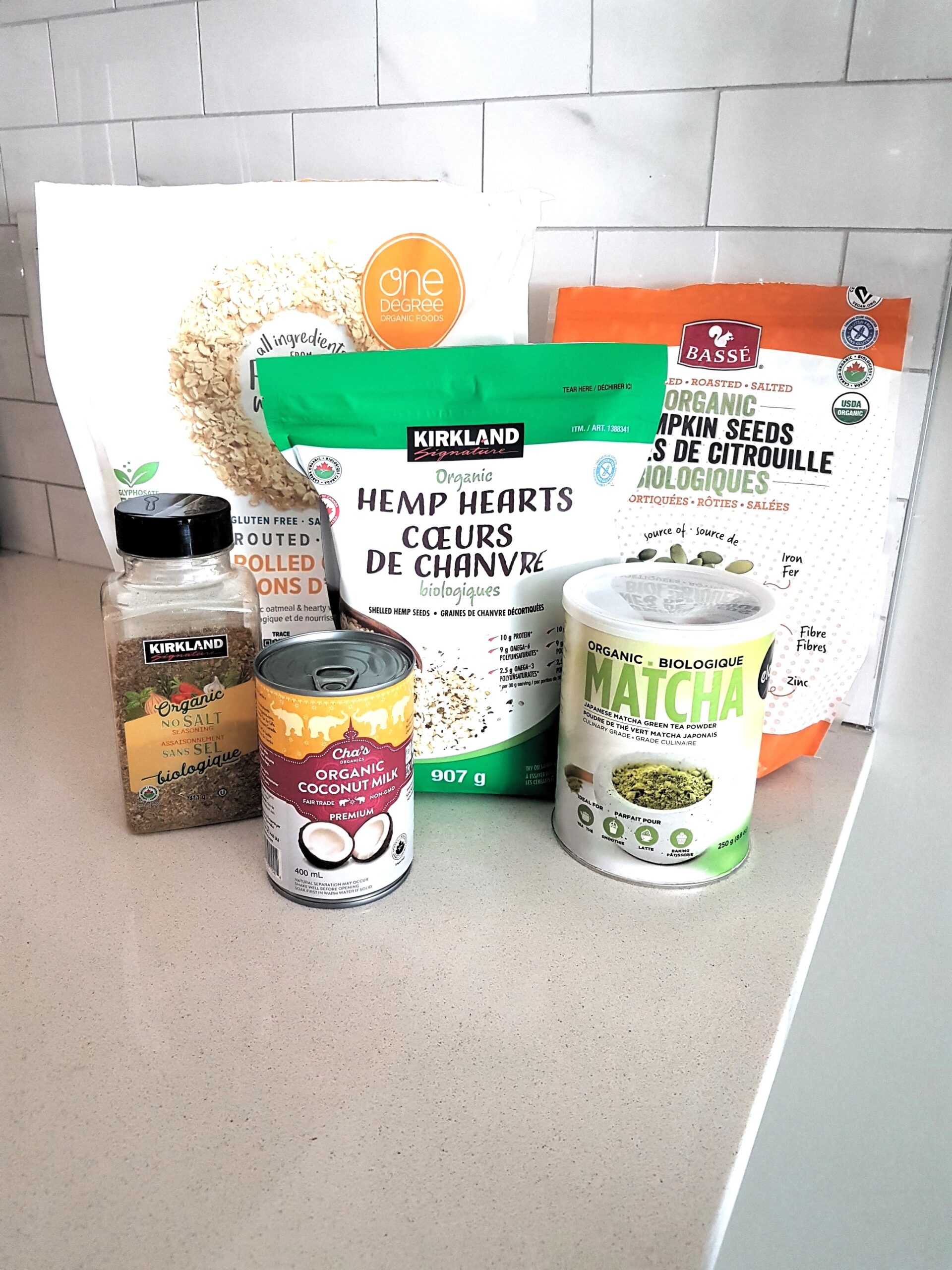
#2- Check the food section at Winners/HomeSense
Buy some of your pantry staples at Winners/HomeSense. They often have great deals on gluten-free flours, salt, spices, nuts, sauces, tea, and snacks. I always check what they have when I’m there! Don’t forget to check the clearance section. Just make sure to be aware of what prices may be elsewhere, to ensure you’re getting a good deal!
#3- get creative with produce scraps & make your own broth
Get the most out of your organic vegetables by making your own vegetable broth with the vegetable scraps that would normally be thrown away. To do this, you simply freeze your vegetable scraps as you go, which includes clean peels, carrot ends, etc., and boil the scraps when you have a full freezer bag or are ready to make the broth. Some vegetables shouldn’t be used for broth as it can create a bitter flavour or make the broth an unappealing colour. Click here for an easy vegetable broth recipe using scraps. Here is another article on how to prevent your broth from turning out bitter, and how to fix your broth if it turned out bitter.
You can also use bouillon cubes or vegetable broth powder instead of pre-made broth when making soups and a variety of other dishes. I frequently buy this vegetable powder and use it all the time for making soups. You simply add it to filtered water to make the base for a soup. This is much less expensive than buying pre-made cartons of broth.
Additionally, there are some great ideas out there on how to use grocery scraps (like lemon peels, broccoli stems, oat pulp, etc.) that may have otherwise just been thrown away. If you’re looking for some creative ideas on that, I highly recommend the “Scrappy Cooking” recipes by Carleigh over on PlantYou.com.
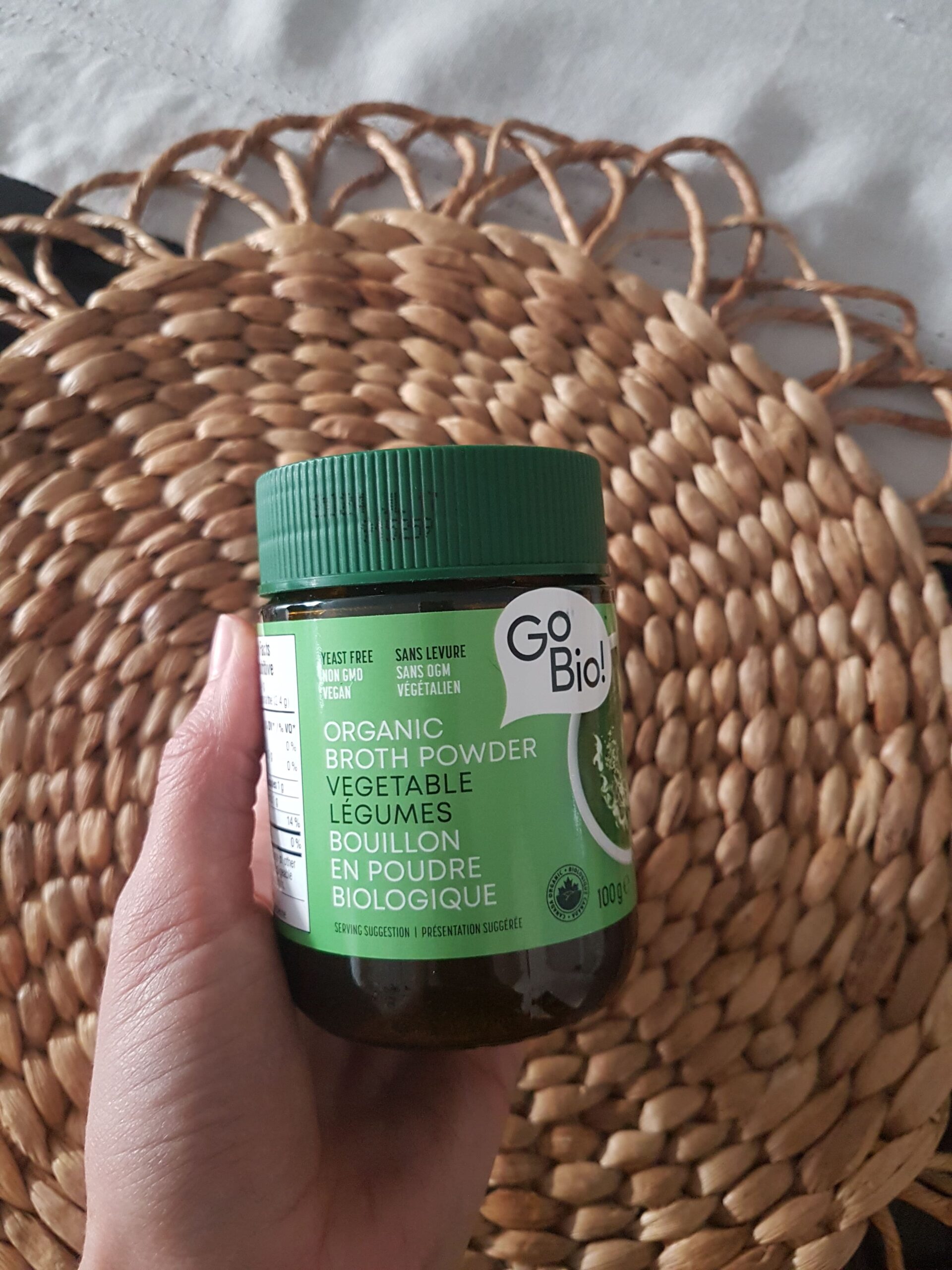
#4- buy produce that’s in season
Take advantage of foods that are in season. Not only is produce in season generally less expensive, but it is more nutrient-dense as well because it is usually fresher! Anything local, fresh, and in season will be highest in nutrients.
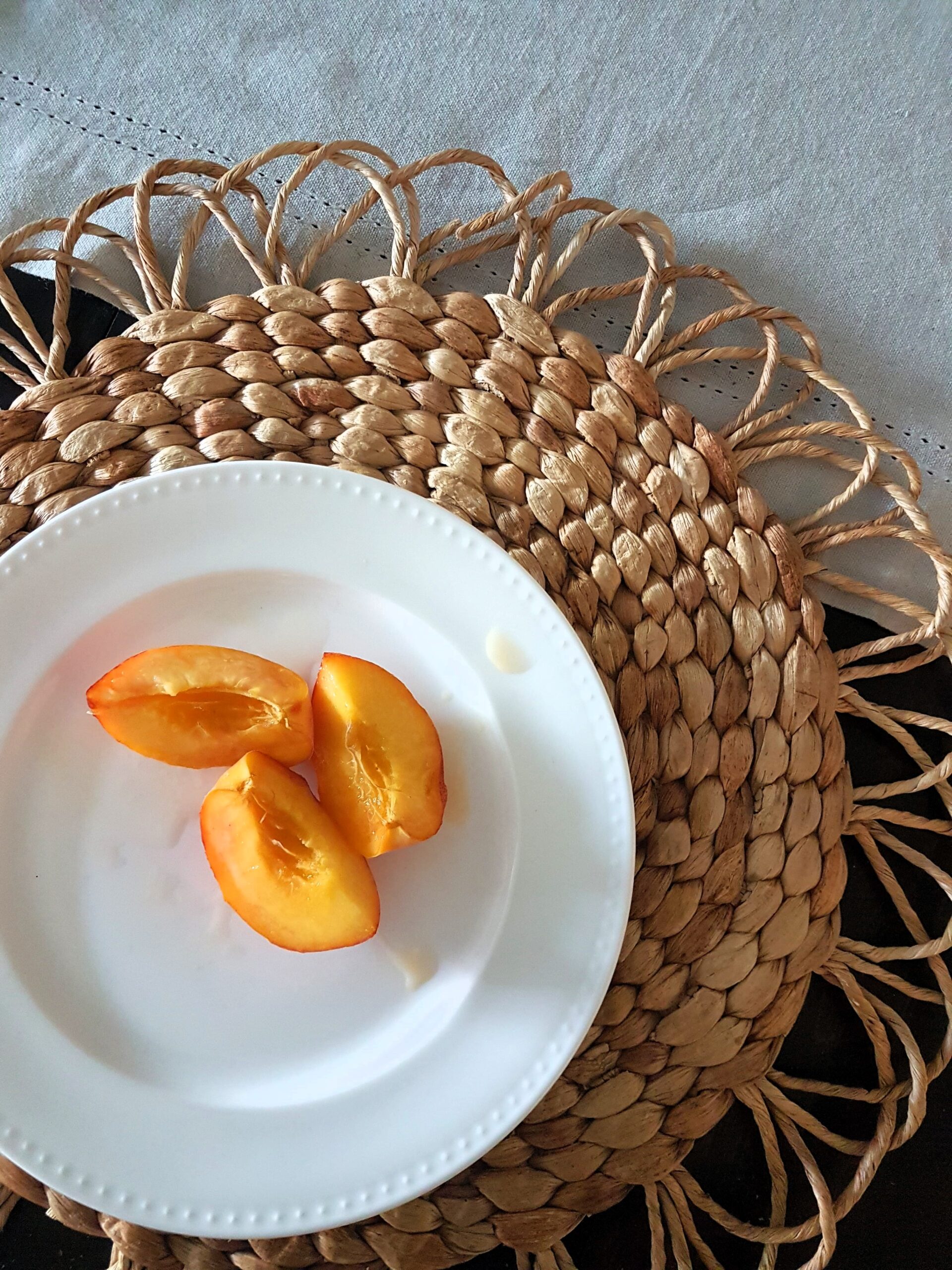
#5- Research a local farm to buy directly from
Jumping off of the previous tip, try to establish relationships with local farmers. Research your area to see if there’s a local organic farm you can buy directly from. Check social media as well as farmer’s markets. If you can buy directly from them, you will save a lot of money! For example, there is an organic farm north of where I live called The Honest Box. Through their membership program, you can pick your own produce from their farm, as well as purchase other local items that they offer.
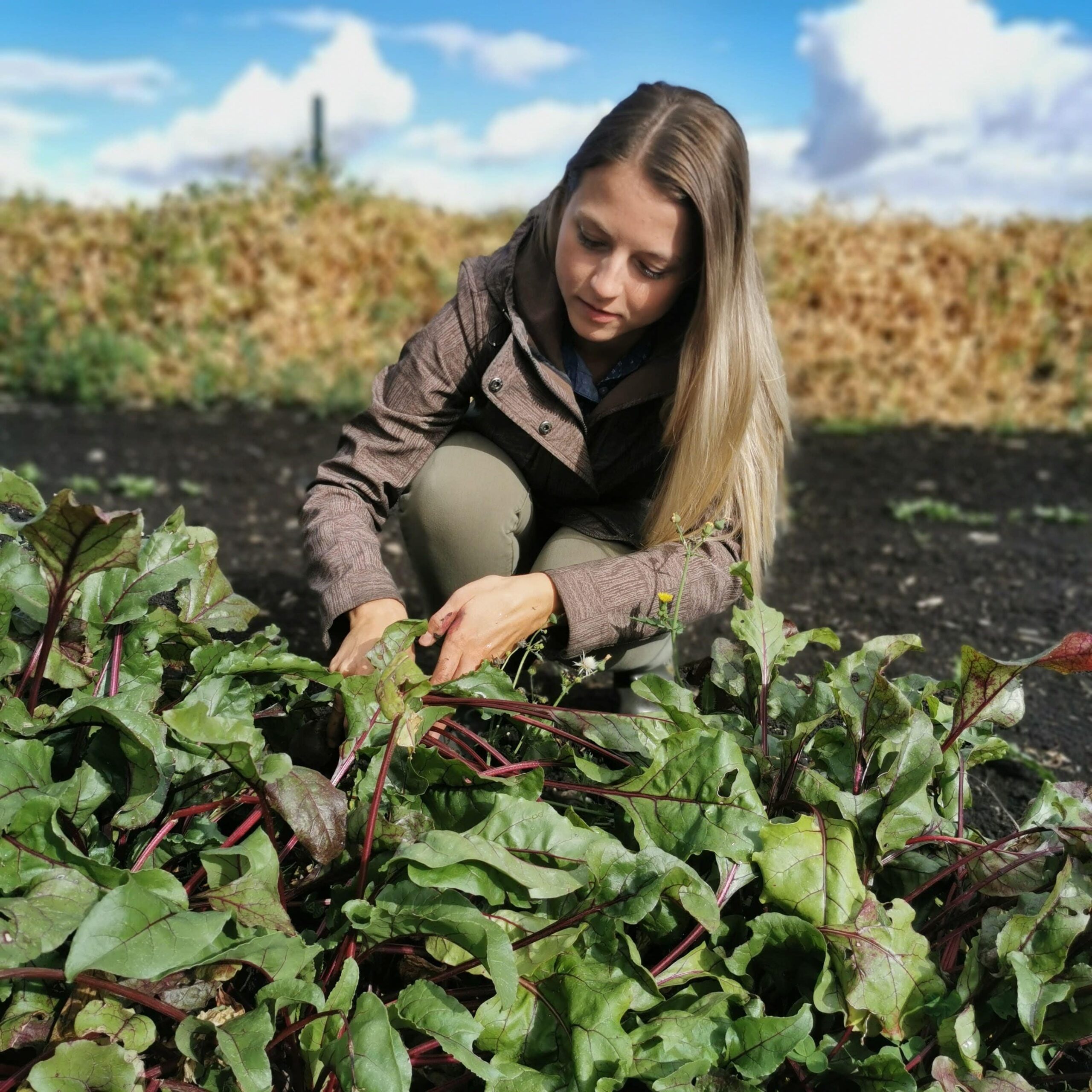
#6- have your own garden
Grow as much food as you can! If you don’t know where to start, focus on cut-and-come-again crops so you can harvest them continuously throughout the growing season. Crops like lettuce and herbs are easy to grow, even in a small space or windowsill, and can be harvested throughout the growing season. Use terracotta pots, which are non-toxic and inexpensive.
Gardening equipment can be expensive, so don’t overdo it in that area. Focus on good quality items, including good quality soil, that will set you up for success in the long run! Over time, the initial cost will be worth it! As mentioned, cut-and-come again crops will be the best ‘bang for your buck’ as you can get multiple harvests from them throughout the growing season. This helps to offset the initial cost for any gardening supplies.
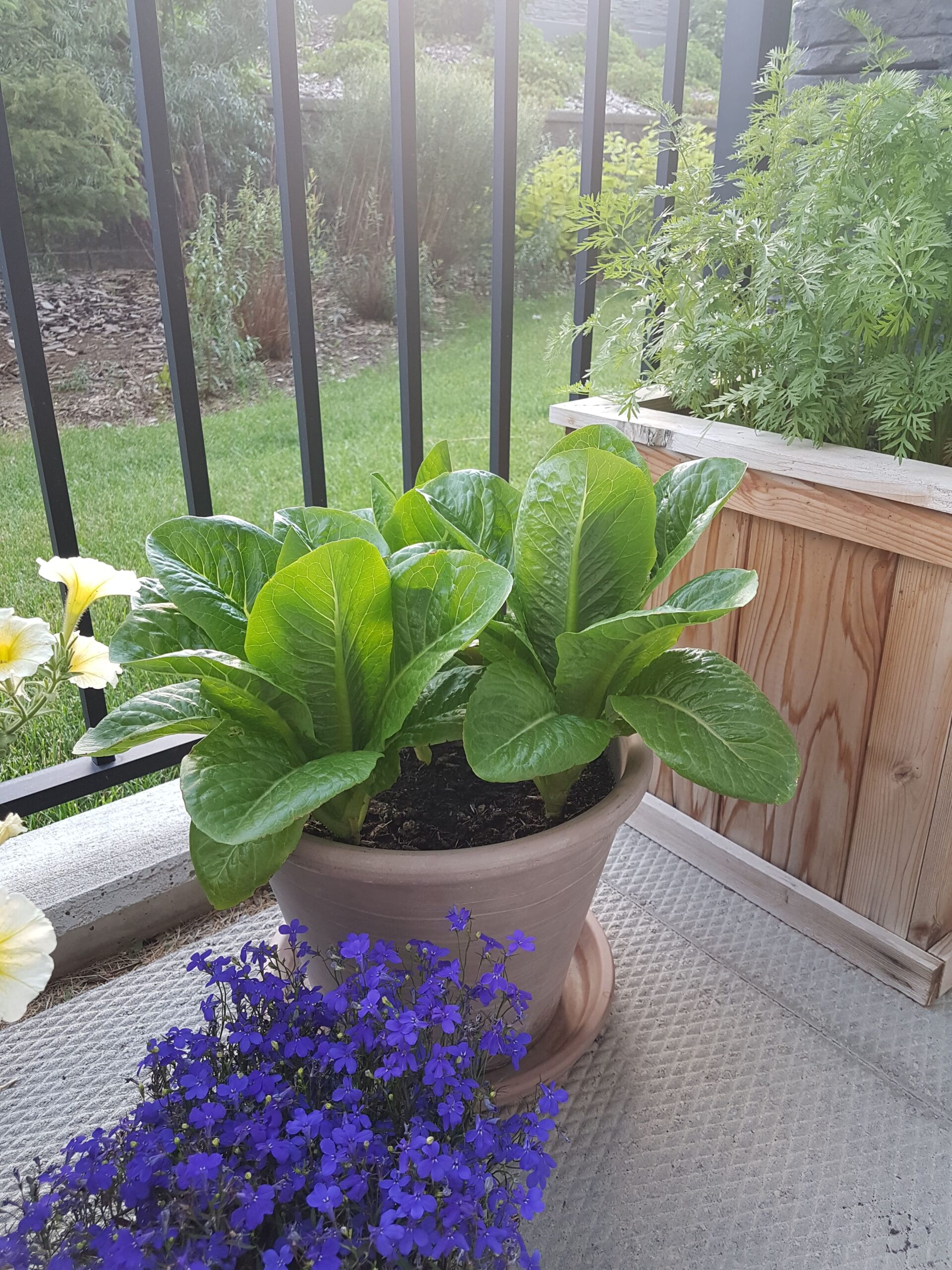
#7- Cook as much as you can & keep it simple
Make what you can rather than relying on pre-made packaged food. Focus on easy, simple recipes without a whole bunch of weird ingredients. You do not need to be talented in the kitchen to be able to make some simple recipes.
Things like salad dressing, cookies, and chia seed jam are examples of easy items to make instead of buying! But don’t worry about making everything from scratch- I certainly don’t, although I would love to get to that point some day. Just do what you can. Start slow and don’t overwhelm yourself.
To get plenty of ideas for easy recipes, follow me on Pinterest as I am always on the hunt for easy, simple, and delicious recipes. It’s very rare that I pin anything that is overly complicated to make!
#8- make less stops at the grocery store
Be mindful of how often you make trips to the grocery store. Before making an extra stop at the store, ask yourself if it’s truly necessary to get more items. Could you make do for a couple more days with the groceries you already have? Is there anything you need to use up? Is there anything you could use in a different way as a substitution for a specific ingredient?
I’ve surprised myself many times by whipping up a tasty meal with the ingredients I had on hand, even when I thought I “didn’t have anything to make”. Check out my blog post here on versatile meals you can make with limited groceries on hand for some ideas.
#9- Incorporate vegan meals
Incorporate vegan meals into your rotation if you don’t already. Using inexpensive pantry staples like whole grain rice, quinoa, and beans is usually much cheaper than buying good-quality meat, and they can form the base for a vegan meal that is budget-friendly and still contains a good amount of protein.
Easy meals to make a vegan version of include burrito bowls, soups, stir fry, and “buddha bowls”. I like to add additional nuts and seeds wherever possible for more protein. Beans, organic tofu, quinoa, and nuts, are all good sources of protein, just to name a few.
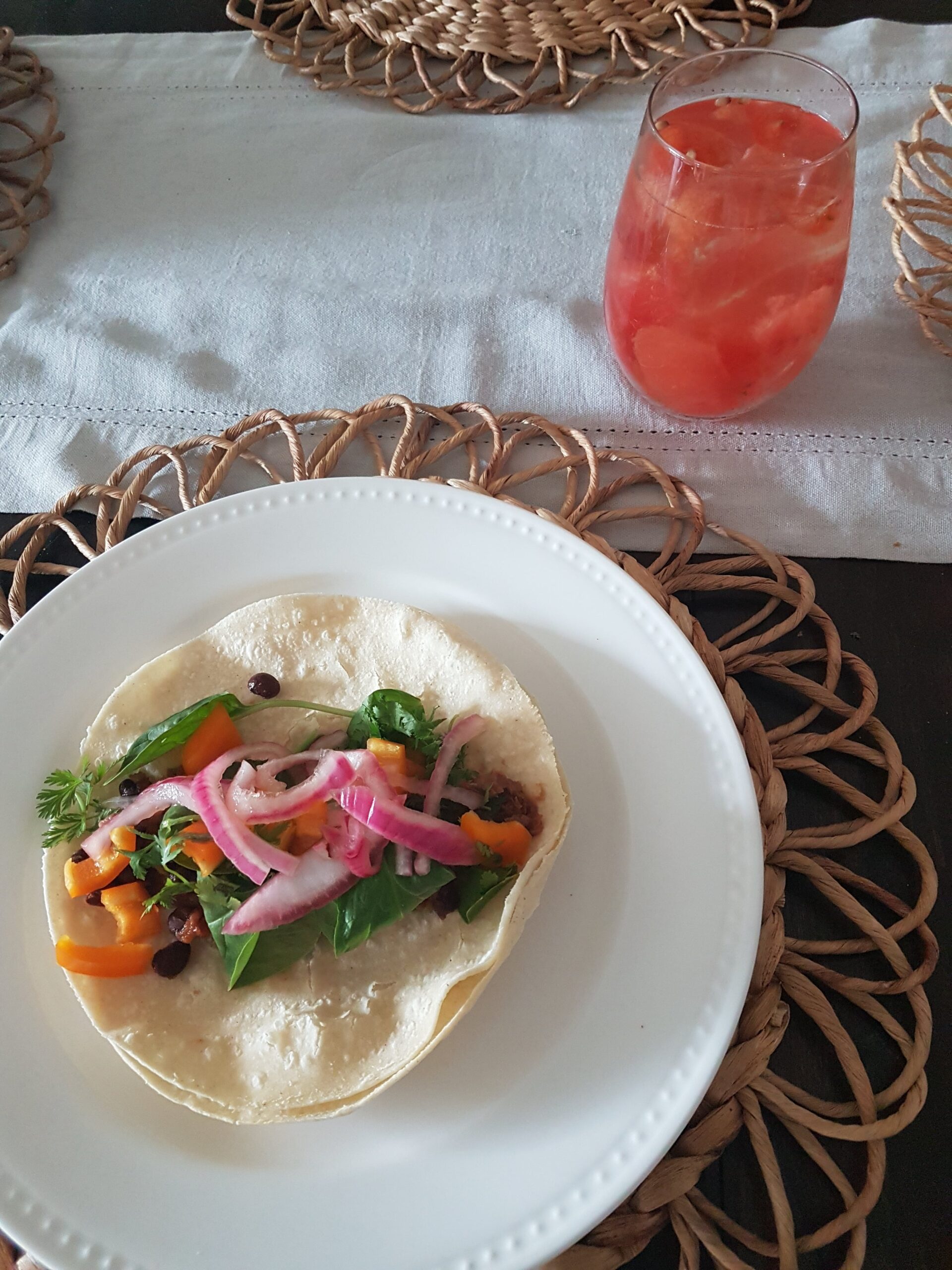
#10- Check your pantry/fridge before shopping & make a list
Make sure to look at what’s in your fridge and pantry, and make a list of what you need to buy before going out shopping. This helps to prevent buying duplicates of items that may end up going bad before you can use them up.
Ensuring you don’t overload your fridge and pantry helps to prevent loosing track of items that are stuck at the back and forgotten about. Being able to clearly see what you have, and easily access what you have, will make it easier to cook and easier to keep track of, and this all helps prevent food from going bad before you are able to use it!
#11- store food properly AND research tips & tricks on the best methods
Did you know that nuts, seeds, and flours should actually be stored in the fridge? That’s right! Because of their oil content (yes, most flours contain naturally occurring oils/fats), they should be stored in the fridge to prevent the oils from oxidizing and going bad!
Storing your food items properly, such as ensuring potatoes, onion, and garlic are in a cool dark spot away from sunlight, and that greens are stored with higher humidity, WILL keep them fresher longer meaning that they are less likely to go bad before you are able to use them. One downside of organic produce is that it does tend to start going bad more quickly, so storing them properly is really important!
No one wants to throw out food that has gone moldy, so taking a bit of time to learn how to store your food properly is a great way to save money! I recommend the resources here from LiveSimply.com for some great food storage tips.
bonus tip- Use the EWG’S clean 15 and dirty dozen lists
If you can’t buy all of your products organic, incorporate the EWG’s ‘Dirty Dozen’ and ‘Clean 15’ lists so you know which produce items are the most important to buy organic.
Each year, the EWG (Environmental Working Group) tests the pesticide residues on produce and makes a list of the top 15 cleanest produce with the least amount of pesticide residues, and a list of the the dirty dozen, which are the dirtiest 12 produce items with the most amount of pesticide residues. Buy the ‘Dirty Dozen’ items in organic to avoid the high level of pesticides, and buy the ‘Clean 15’ items in non-organic (if you can’t buy everything organic). You can view their list here.
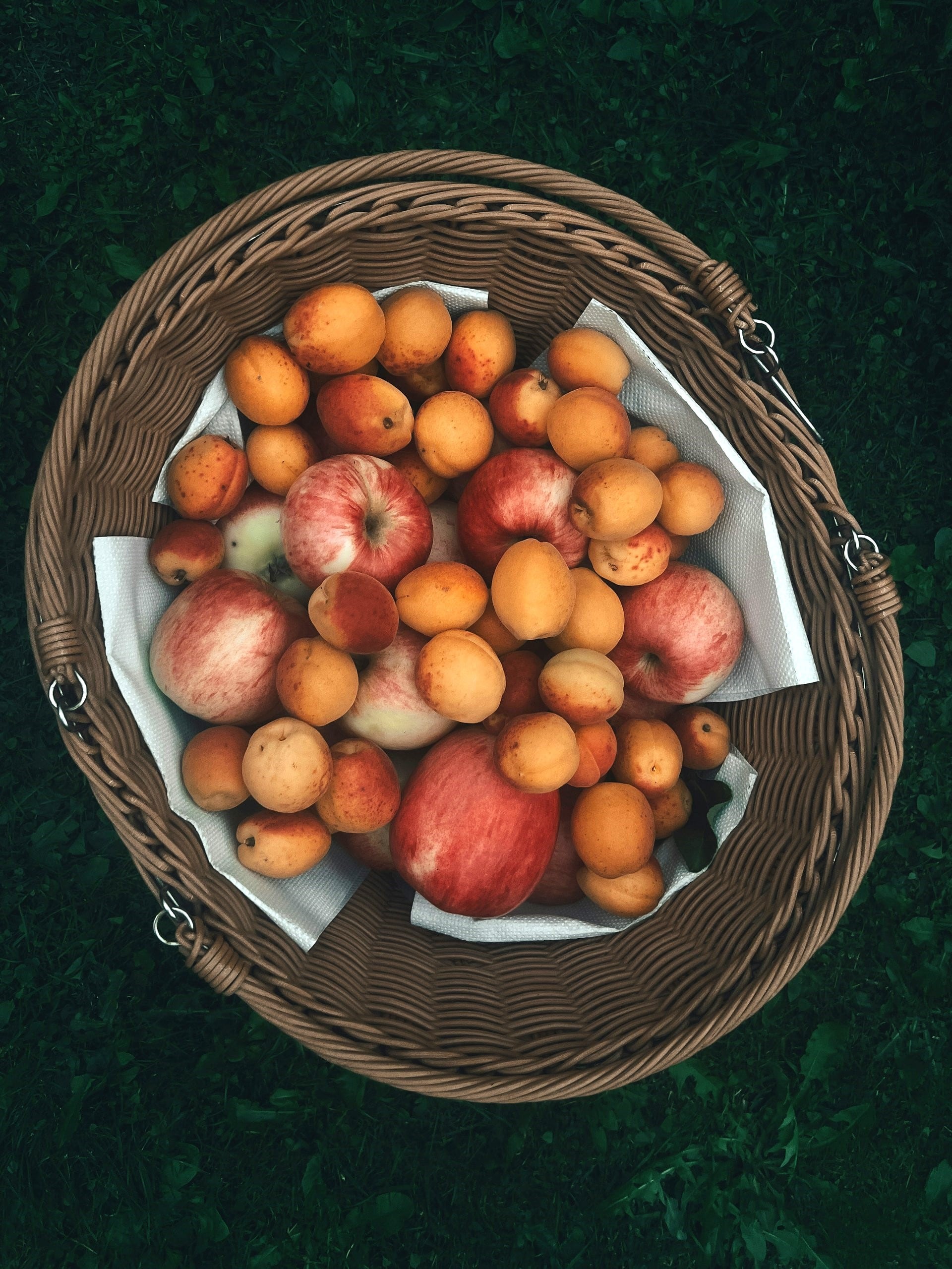
Make organic food a priority over other things
Lastly, if getting healthy is a top priority for you, choose to spend more money on higher-quality food instead of buying other things that you don’t really need. For my husband & I, we tend to have more of a ‘homebody’ lifestyle and don’t go out much. While other people are spending a lot of money going out to concerts, purchasing alcohol, going to the movie theatre, etc. we choose to do activities like that only when we REALLY want to. This will be different for everyone, and you may love to go out to concerts and the movie theatre and want to make those things a priority. Figure out what it is that you can let go of sometimes in order to make buying organic food a priority!
Other things I love to do to save money in general are buying clothes at the thrift store, buying secondhand furniture (and refinishing them myself if needed), and focusing on multipurpose décor items for our home that can be used for multiple seasons and multiple locations rather than having to buy a whole bunch of decor for every season.
I truly hope these tips have helped you to think of ways that can help you to eat more organic food! If you have any questions about them, feel free to leave a comment below!
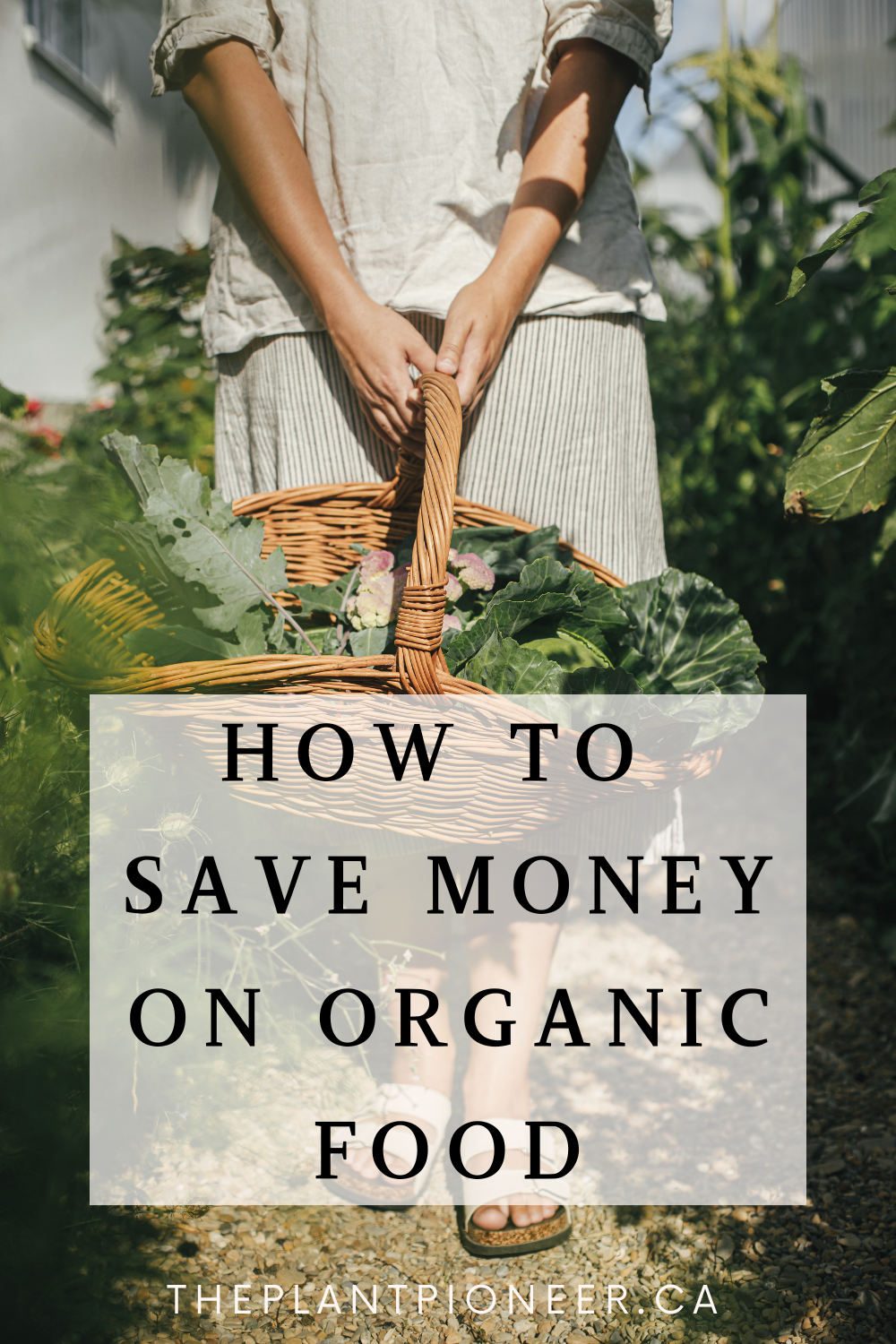


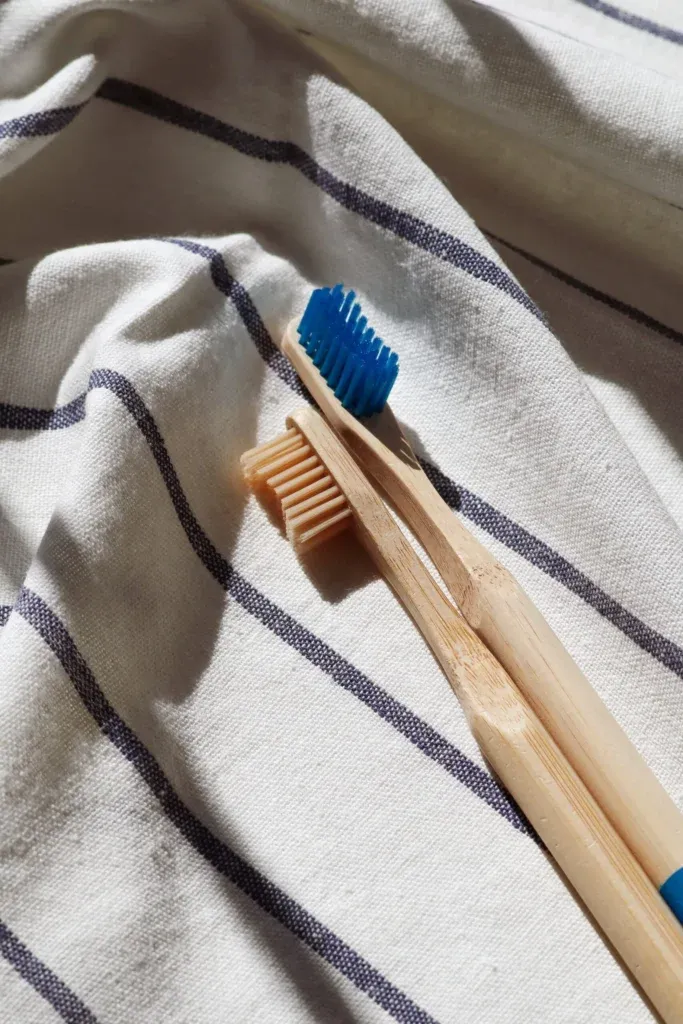
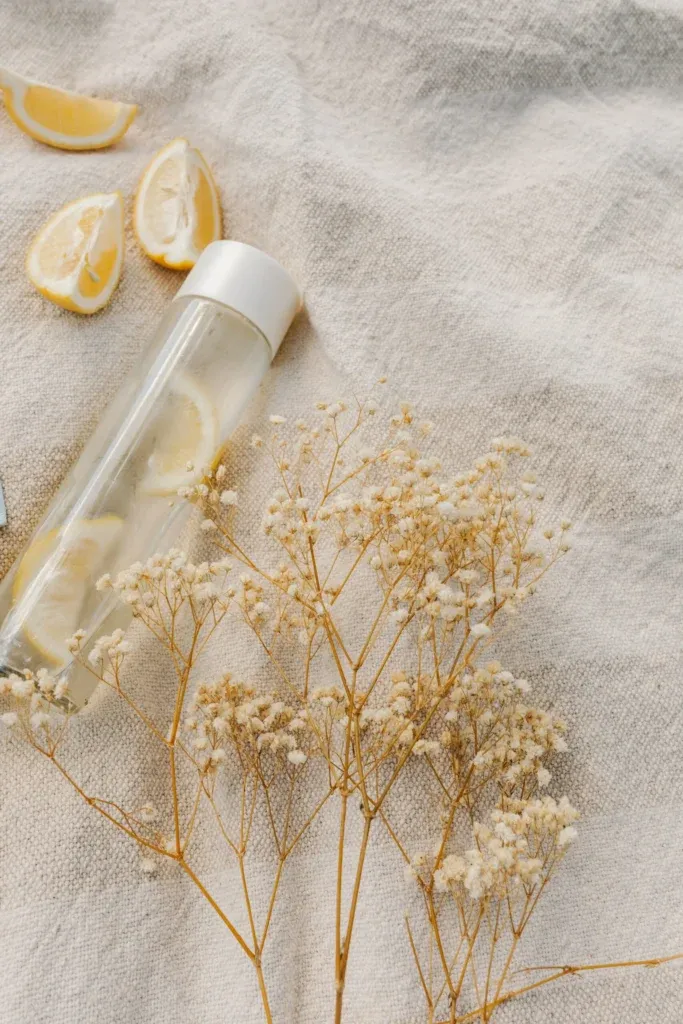
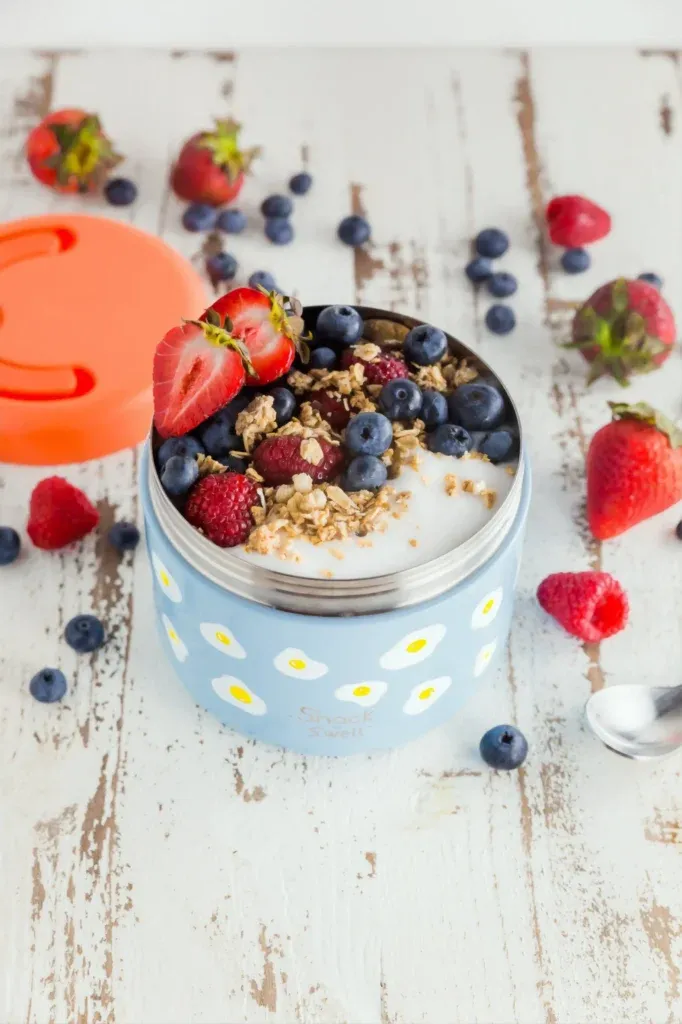
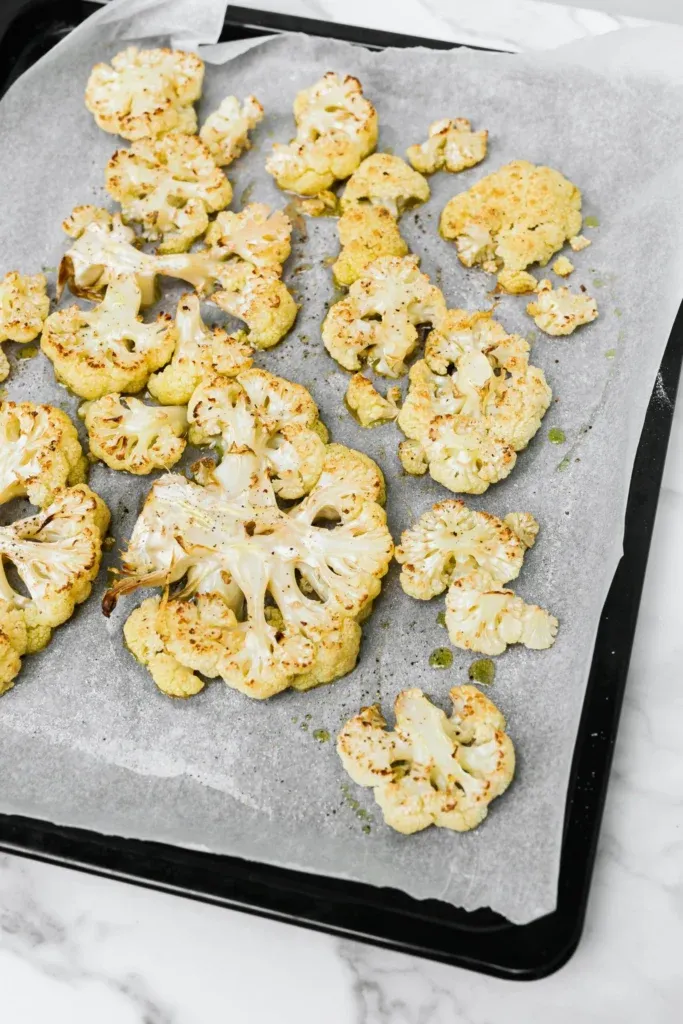
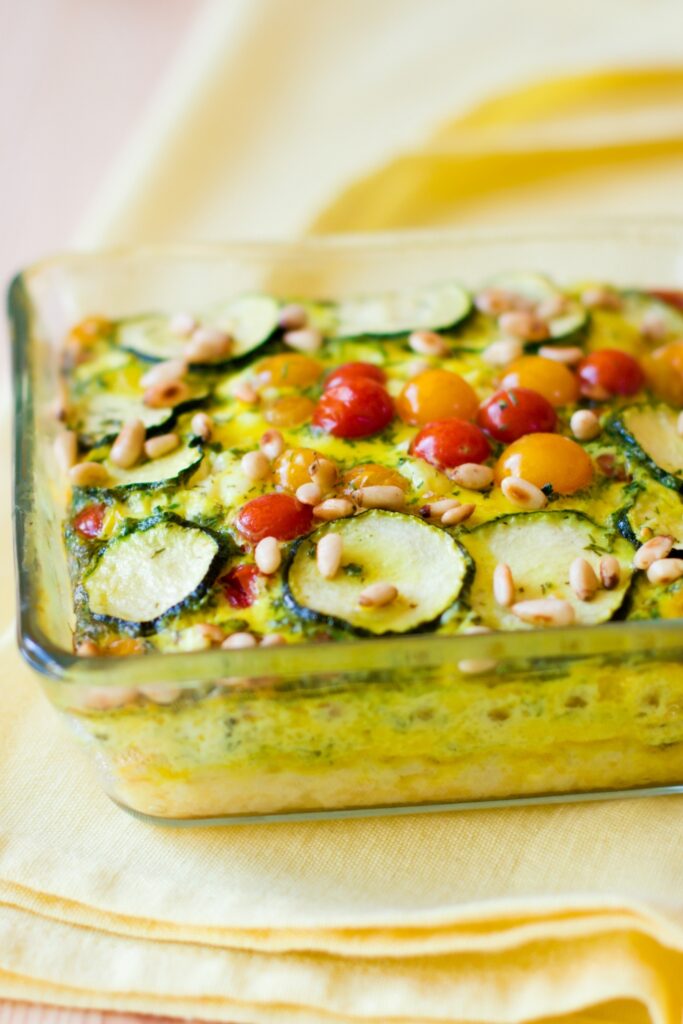
Join the List
Stay informed & receive my latest healthy living tips to your inbox.